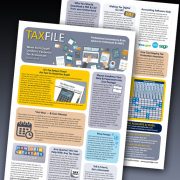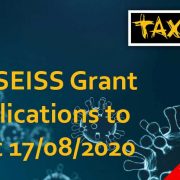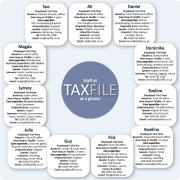Highlights from the Chancellor’s Budget, 18 March 2015
Along with some encouraging news about the UK economy, some interesting new measures were announced in the Chancellor’s Budget yesterday and below we highlight those which we feel will directly impact the majority of UK taxpayers:
- As widely forecast, the tax-free allowance will increase. The amount people can earn before paying tax will rise to £10,800 from 2016-17 and then to £11,000 from 2017-18. At the same points in time, higher earners will also receive a two stage increase to the threshold at which they start to pay a 40% rate of tax, with the threshold increasing to £43,300 by 2017-18.
- The Chancellor also announced a brand new Personal Savings Allowance whereby the first £1,000 of interest (£500 for higher rate taxpayers) will be tax tree. This new allowance will kick in from April 2016 and will take 95% of taxpayers out of savings tax completely. (Fact Sheet available here).
- Another new scheme announced was the introduction of a new ‘Help to Buy ISA’ aimed at prospective first time buyers. This fairly generous scheme means that the Government will chip in up to £50 extra per month (up to a ceiling of £3,000) when an eligible saver saves up to £200 per month towards their first home. (Fact Sheet available here).
- In another ISA reform, savers will now be able to withdraw money from a new Flexible ISA and deposit it back later in the same financial year without losing any of their usual ISA tax benefits. £15,240 will be able to be put into this re-styled savings vehicle.
- The fuel duty increase originally scheduled for September this year has been cancelled, which is great news for motorist, particularly professional drivers, haulage firms, etc. By the end of the 2015-16 financial year, this will result in the longest fuel duty freeze in over 20 years.
- While we struggle to get excited about this next item we thought we’d include it just for the record: 1p will be cut off the price of a pint and 2% off some spirits and most ciders, the duty on wine remaining unchanged. ‘Every little helps’, as they say.
- There is more exciting news for pensioners who, from April 2016, will be able to sell any existing pension annuity for a cash lump sum and only pay their usual rate of tax rather than a rate of 55% or more, which is currently the norm in these circumstances. This brings pensioners with existing annuities in line with the new pension freedoms announced this time last year.
- As part of their simplification of tax, HMRC will also abolish the annual tax return in favour of an automatic system of ‘digital tax accounts’. Most individuals will apparently not need to supply the information HMRC needs because it will be automatically received to the new digital system. In effect, with the information needed by HMRC being automatically collected, businesses will simply need to pay a simple, single business tax, to all intents and purposes.
- National Insurance contributions will be abolished for those aged under 21 from April this year and, from April next year, it will be abolished for the employment of a young apprentice. Also, from the next Parliament, Class 2 National Insurance contributions for the self-employed will also be abolished.
Other news from the Budget included: small increases to the statutory minimum wage; announcements of better transport links to the North; support for enterprise in several regions of the UK; an increase in the Bank Levy which should raise an extra £900 million per year from banks; an increase in the support for the oil and gas sector; further significant investments in fast broadband, mobile networks, science and innovation; possible future tax reliefs for struggling local newspapers; an extension of the number of years in which farmers can average their profits; help for charities, children’s mental health services and new mums, plus significant loans for postgraduate PHD and masters research students.
Along with the news that the UK is the fastest growing economy in the G7, employment is at the highest level in history, inflation is the lowest it’s ever been and unemployment is falling steadily across the entire UK, George Osborne also forecast that the UK budget deficit should turn into a surplus, of approximately £5.2 billion by 2018-19, in his Budget. So, truly great and very welcome news for the UK economy. A transcript of the full speech is available here. More detailed information and various links relating to the budget are available here.
If you have any queries related to tax and accountancy simply get in touch with us here at Taxfile and we will be delighted to help. Call us on 0208 761 8000, contact us here or book an appointment with one of our tax advisors here.









